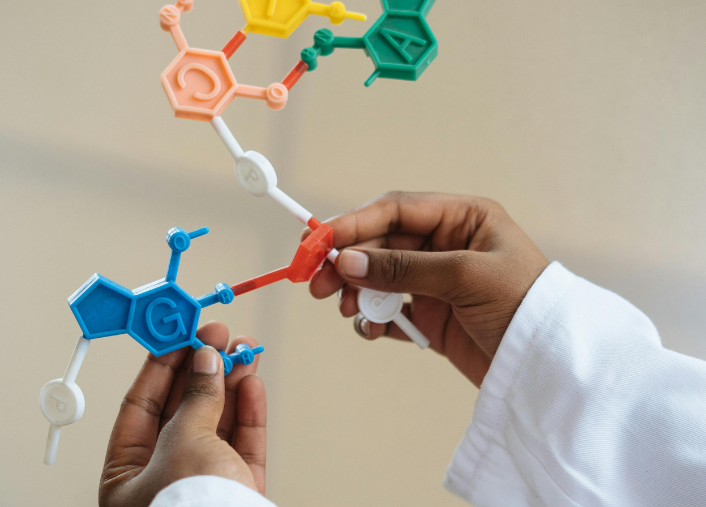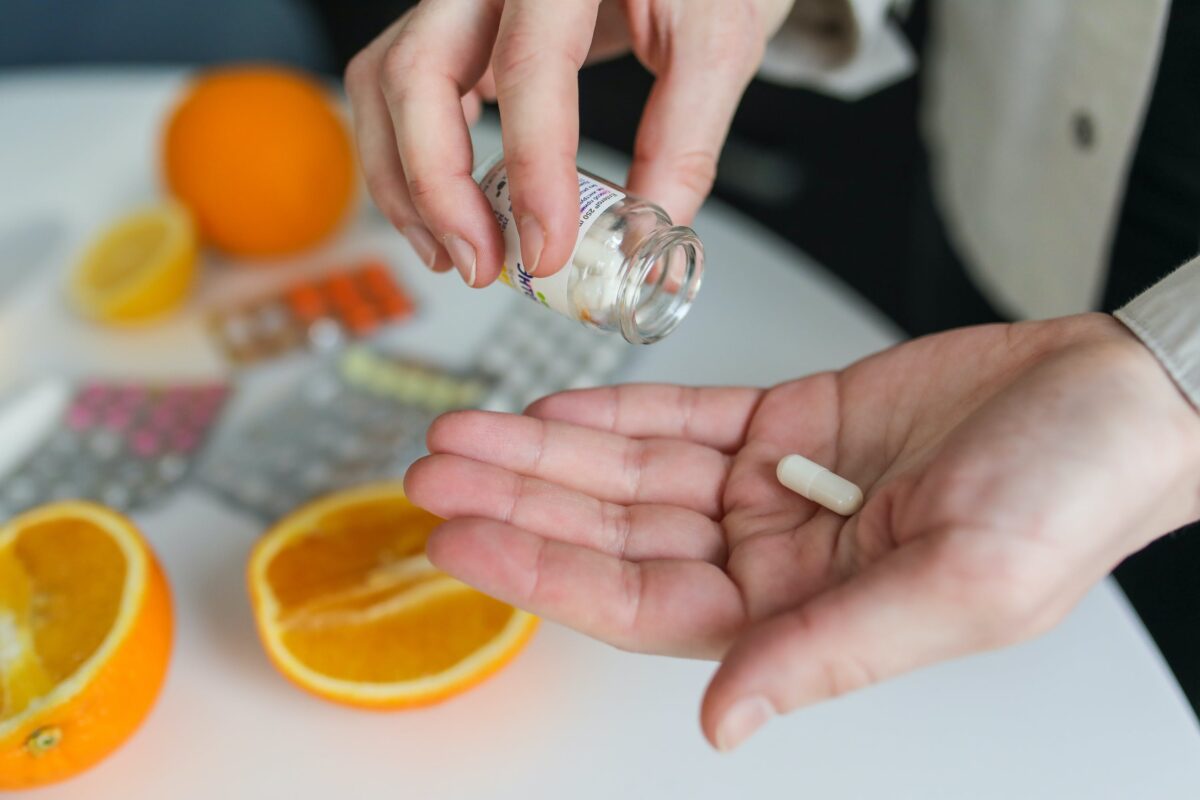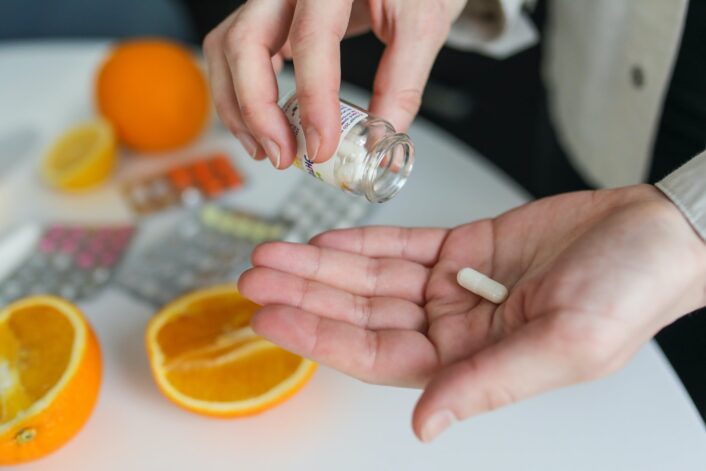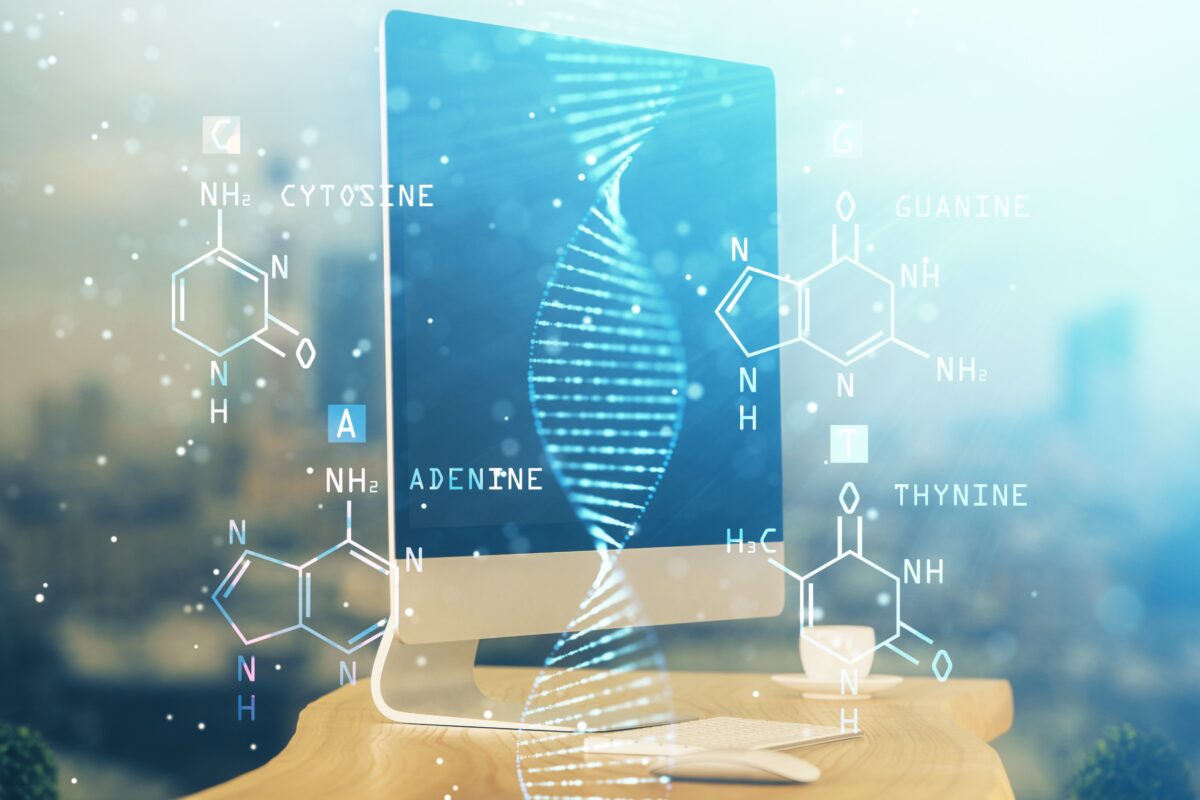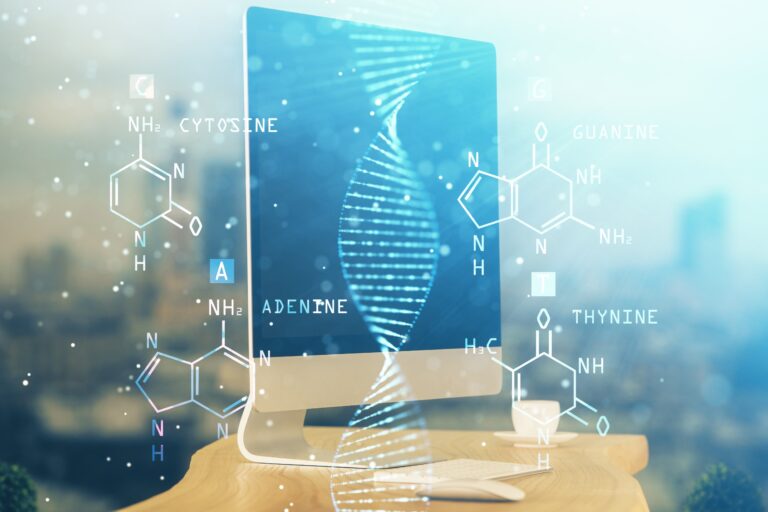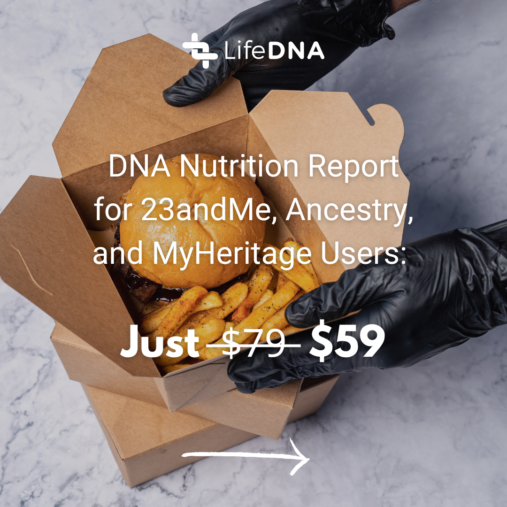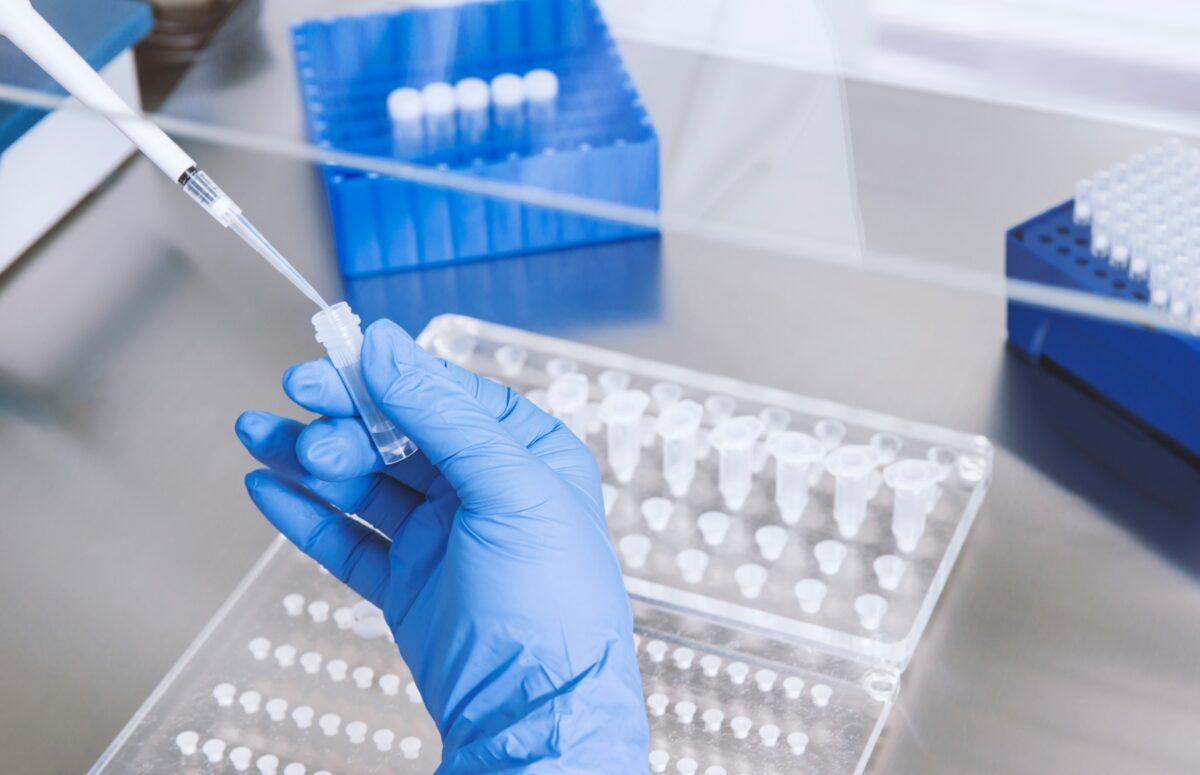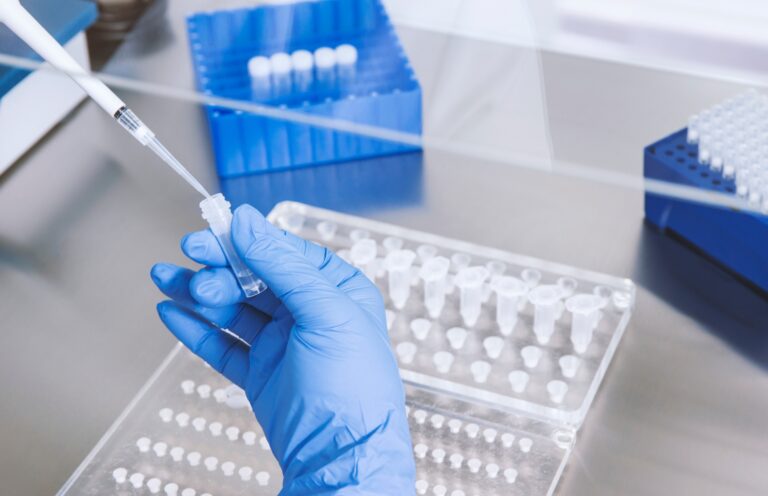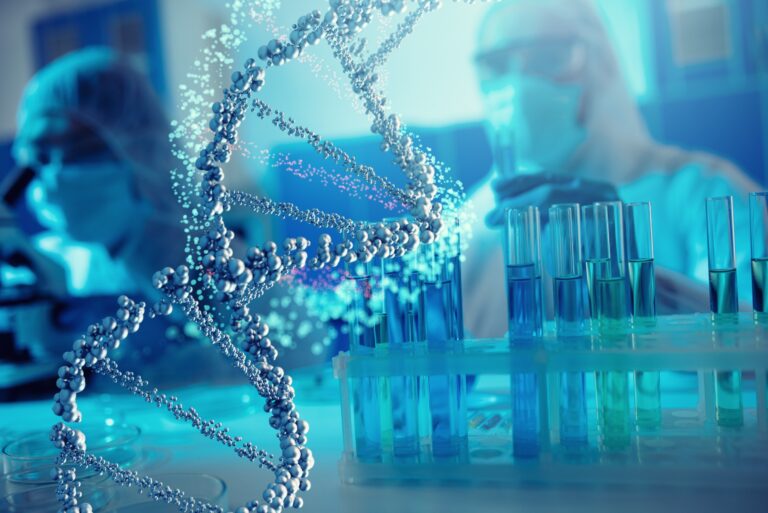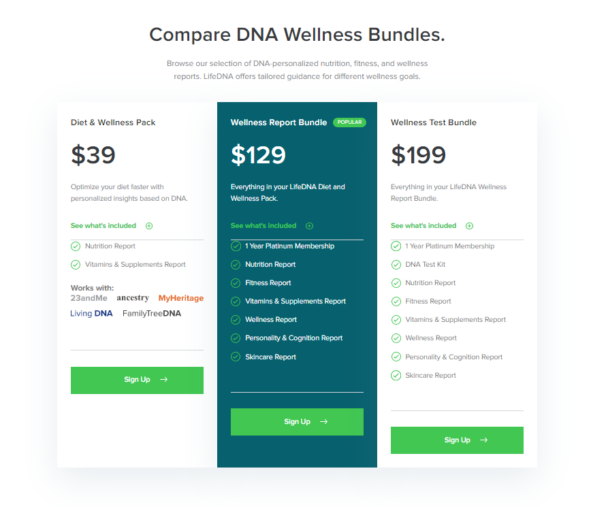LifeDNA Aging Report: A Walkthrough
harvey
on
May 2, 2024
Latest Posts
Table of Contents
LifeDNA Aging Report: A Walkthrough
Date of Content: April 21, 2024
Written by: Avanthika Nityanand
Reviewed by: Maarit Tiirikainen, PhD
This is a LifeDNA Premium Report.
Aging is a natural and complex process involving gradual physiological and biological changes in an organism over time. This process affects individuals on a cellular, molecular, and organ system level. It leads to the eventual decline in physical and mental capacities and increased susceptibility towards certain conditions and the end of an individual’s lifespan.
Biological markers of aging include:
- deterioration of cellular functions
- loss of telomere length
- accumulation of metabolic waste products
- decreased regenerative capacity of stem cells
While aging is a universal process observed across different species, the rate and impact of aging can vary significantly due to genetic, environmental, and lifestyle factors.

How Aging Works
Aging works through several mechanisms that impact the body on a cellular and molecular level. One primary aspect is the accumulation of cellular damage over time, which includes DNA mutations and oxidative stress caused by free radicals.
Additionally, telomeres—the protective caps at the ends of chromosomes—shorten with each cell division, leading to cellular aging and dysfunction. Hormonal changes also play a critical role, particularly the decrease in hormones like estrogen and testosterone, which affect various body systems.
Moreover, the decline in cellular autophagy (a process by which cells clean out damaged components) and increased inflammatory responses contribute to the aging process. These changes collectively lead to the typical signs of aging, such as wrinkles, decreased mobility, and impaired cognitive functions.
LifeDNA Aging Report
The LifeDNA Aging Genetic Report analyzes genetic markers that influence the some of the aging processes and related outcomes. Here’s a general overview of the traits covered in the report and how understanding the genetics can be beneficial:
Age-related Hearing Loss
Age-related hearing loss, also known as presbycusis, is the gradual loss of hearing that occurs as people get older. This condition typically affects both ears and results from changes in the inner ear, auditory nerve, and other structures. Contributing factors include long-term exposure to loud noises, genetics, and changes in blood supply to the ear due to heart disease or high blood pressure. Hearing loss can impact speech understanding, particularly in noisy environments, and often high-pitched sounds are lost first. Genes like SIK3 have been shown to influence this trait.
Age-related Muscle Mass Loss
Age-related muscle mass loss, or sarcopenia, involves the progressive loss of skeletal muscle mass and strength beginning as early as the 30s or 40s. This decline can contribute to weakness, decreased stamina, and an increased risk of falls and fractures. Sarcopenia is driven by factors such as hormonal changes, reduced physical activity, changes in protein synthesis, muscle regeneration, and genetics. Genes like VDR and ACTN3 have been shown to be associated with this trait.
Eyelid Sagging
Eyelid sagging, in the forms of dermatochalasis or ptosis, refers to the drooping or sagging of the upper eyelid that often occurs with age. This can be due to the weakening of the muscles that raise the eyelid (ptosis) or degeneration of the skin and soft tissue around the eyes (dermatochalasis). Eyelid sagging can impair vision if the eyelid falls low enough to cover the pupil. A 2018 GWAS identified several new genes, like MACROH2A2 (or H2AFY2), that were shown to be significantly associated with eyelid sagging.
Age-related Physical Function Impairment
Age-related physical function impairment encompasses a decline in the ability to perform daily tasks and movements effectively, such as walking, balancing, and handling objects. This impairment results from a combination of factors including muscle weakness, joint problems, neurological decline, cardiovascular limitations, and genetics. Genes like ACTN3 and UCP2 have been shown to be associated with this trait.
Risk of Repeated Falls
As people age, they face an increased risk of repeated falls due to factors such as reduced muscle strength, balance disturbances, visual impairments, and slower reaction times. Falls are a major concern in the elderly, leading to injuries like fractures and head trauma, which can significantly impair mobility and independence. Genes like FHIT have been shown to be associated with this trait.
Vascular Aging
Vascular aging refers to the changes in the vascular system as we age, including stiffening of the arteries and reduced efficiency of blood vessels. These changes increase the risk of cardiovascular conditions such as hypertension, stroke, and heart attacks. Factors like smoking, high cholesterol, and diabetes can exacerbate vascular aging. A 2022 GWAS uncovered nearly 60 significant genes associated with this trait.
Age-related Bone Loss
Age-related bone loss, or osteoporosis, is the thinning of bone tissue and loss of bone density over time. As bones become less dense, they weaken and are more likely to fracture. This process is accelerated in women after menopause due to a drop in estrogen levels, a critical factor in bone density and health. Studies have shown that genes like ALDH7A1 significantly influence the risk for osteoporosis. The ALDH7A1 gene codes for a protein that breaks down and detoxifies acetaldehyde—a substance that disrupts the growth of osteoblasts (young bone cells) and reduces bone formation.
Age-related Cognitive Decline
Age-related cognitive decline is the gradual decrease in cognitive functioning that includes memory, thinking, and reasoning skills. While not all older adults experience significant cognitive decline, many will notice slower processing speeds and difficulties with multitasking, learning new skills, and remembering information. Studies have shown that the APOE region is significantly associated with cognitive aging. The LifeDNA Aging report covers many more such markers.
You may also like: Walkthrough of the LifeDNA Personality & Cognition Report
Age-related Muscle Weakness
Age-related muscle weakness is a decrease in muscle strength that accompanies aging and is often associated with sarcopenia. It results from a reduction in muscle fiber quantity and quality, impacting an individual’s ability to perform physical tasks and maintain independence. Genetic variation in genes like SLC39A8 have been shown to influence this trait.
Age-related Verbal Memory Decline
Age-related verbal memory decline involves the deterioration of memory functions, characterized by difficulties in recalling names, appointments, and recent events. This type of memory loss is considered a normal part of aging, distinct from the memory impairments seen in dementia and Alzheimer’s disease. A first-of-its-kind large genetic study in 2017 found significant associations between genes like APOE and memory-related parameters like immediate recall.
Hair Graying
Hair graying is a common sign of aging caused by the gradual loss of pigment cells (melanocytes) in hair follicles. This results in hair turning gray and eventually white as pigment production decreases. Genes like IRF4 have been shown to influence this trait.
Healthy Aging
Healthy aging refers to the process of developing and maintaining the functional ability that enables well-being in older age. This concept emphasizes optimizing opportunities for physical, social, and mental health to extend life expectancy and improve the quality of life as individuals age. Factors that promote healthy aging include a balanced diet, regular physical activity, social connections, and effective management of health conditions. Genes like LRP1B have been shown to be associated with this trait.
Can Aging Be Stopped?
Currently, aging cannot be completely stopped as it is an inevitable biological process driven by complex genetic and environmental interactions. However, significant research is focused on understanding and potentially modifying the mechanisms of aging to extend the health span, the period of life spent in good health.
While it’s unlikely that the aging process can be completely halted, interventions such as gene therapy, caloric restriction, and advanced medical treatments may potentially delay the onset of age-related diseases and extend overall lifespan.
The field of gerontology continues to explore these possibilities, aiming to break down the biological barriers of aging.
Can Aging from Stress Be Reversed?
Aging accelerated by stress, often referred to as “stress aging,” can be partially reversed or mitigated. Chronic stress leads to increased production of cortisol, a hormone that, in high levels over prolonged periods, can have detrimental effects on the body, including accelerating aging processes. Managing stress through techniques such as mindfulness, meditation, regular physical activity, and proper sleep can significantly reduce cortisol levels.
Furthermore, adopting a healthy diet rich in antioxidants can help repair some of the cellular damage caused by stress. While it’s challenging to completely reverse the effects of stress on aging, these lifestyle changes can improve both physical and mental health and potentially slow the aging process.
Can Aging Be Slowed Down?
Aging can be slowed down through several scientifically supported methods. Key lifestyle choices such as maintaining a balanced diet rich in fruits, vegetables, and whole grains, regular physical activity, and avoiding harmful habits like smoking and excessive alcohol consumption can significantly delay the onset of aging process with its typical signs and diseases.
Caloric restriction has been shown in various studies to extend the lifespan of certain organisms by reducing metabolic stress. Advances in medicine, such as the use of antioxidants, hormone replacement therapies, and anti-aging skincare products, also contribute to slowing down the effects of aging.
Additionally, ongoing research into pharmacological agents that target aging processes, like senolytics which remove dysfunctional cells, holds promise for further slowing down the aging process in humans.
Why LifeDNA?
LifeDNA has emerged as a prominent option for analyzing raw DNA data from 23andMe and many other sources, owing to a combination of unique offerings and a commitment to personalized wellness.
We offer a basic DNA data analysis package to kickstart your journey. Users with raw data from 23andMe, AncestryDNA, etc., can access close to 200 traits across interests such as Nutrition, Wellness, Vitamins and Supplements, Personality and Cognition, Fitness, Sleep, Methylation, and Skincare.
Further, if you do not have raw DNA data, such as from 23andMe, LifeDNA provides that too. Start your personalized wellness journey with LifeDNA’s state-of-the-art DNA kits here.
Here is why many regard LifeDNA as the best option for making the most of your 23andMe, AncestryDNA, and other raw data:
- Holistic Approach to Wellness: Unlike many other platforms that focus strictly on health-related risks or ancestry, LifeDNA adopts a holistic approach. We analyze genetic data to offer personalized optimizations for nutrition (including a customized grocery list!), skin care, vitamins & supplements, wellness, personality & cognition, and fitness. This range lets users get a complete picture of their wellness needs based on their DNA.
- Product Recommendations: We go beyond just providing insights. We offer specific product recommendations, skincare ingredients, or supplements tailored to an individual’s genetic profile. It makes our service actionable, allowing users to make immediate changes based on their results.
- Data Security: At LifeDNA, we place a high emphasis on protecting user data. Our commitment to privacy ensures that users can trust the platform with their sensitive genetic information.
- User-Friendly Reports: LifeDNA reports are easy to interpret. Our reports are designed to be accessible to the layperson without compromising on the depth and accuracy of the information.
- Continual Updates: As genetic research evolves, so does LifeDNA’s platform. Users can expect their reports and insights to be updated with the latest scientific findings.
- Dedicated Research and Development: At LifeDNA, we invest in research to continually refine our algorithms, ensuring that the insights provided are based on cutting-edge science.
- Educational Resources: LifeDNA also provides ample resources for users to understand their genetic makeup better. This education-first approach demystifies the complex world of genetics, making it approachable and actionable for everyone.
- Scientific Rigor: To create an unmatched commitment to scientific rigor, LifeDNA partners with CLIA-certified, CAP-accredited, and HIPAA-compliant laboratories.
References
- https://doi.org/10.1038/ncomms10815
- https://journals.plos.org/plosone/article?id=10.1371/journal.pone.0182448
- https://doi.org/10.1038/s41467-021-20918-w
- https://www.nature.com/articles/mp2012159
- https://journals.plos.org/plosgenetics/article?id=10.1371/journal.pgen.1000806
- https://www.frontiersin.org/articles/10.3389/fcvm.2022.1058308/full
- https://doi.org/10.1093/ageing/afy007
- https://doi.org/10.7717%2Fpeerj.980
- https://onlinelibrary.wiley.com/doi/10.1111/exd.13559
- https://doi.org/10.1002%2Fjcla.23485
- https://doi.org/10.1155/2017/4239648
- https://doi.org/10.1093/hmg/ddu346
- https://www.ncbi.nlm.nih.gov/books/NBK10041/
- https://www.genome.gov/genetics-glossary/Telomere#
- https://www.sciencedirect.com/topics/medicine-and-dentistry/caloric-restriction#:~:text=Caloric%20restriction%20(CR)%20is%20today,et%20al.%2C%202009).
- https://pubmed.ncbi.nlm.nih.gov/32686219/
Customer Reviews




*Understanding your genetics can offer valuable insights into your well-being, but it is not deterministic. Your traits can be influenced by the complex interplay involving nature, lifestyle, family history, and others.
Our reports have not been evaluated by the Food and Drug Administration. The contents on our website and our reports are for informational purposes only, and are not intended to diagnose any medical condition, replace the advice of a healthcare professional, or provide any medical advice, diagnosis, or treatment. Consult with a healthcare professional before making any major lifestyle changes or if you have any other concerns about your results. The testimonials featured may have used more than one LifeDNA or LifeDNA vendors’ product or reports.







